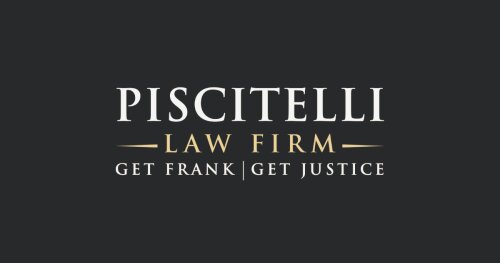Best Restructuring & Insolvency Lawyers in Ohio
Share your needs with us, get contacted by law firms.
Free. Takes 2 min.
Or refine your search by selecting a city:
List of the best lawyers in Ohio, United States
About Restructuring & Insolvency Law in Ohio, United States
Restructuring and insolvency law in Ohio covers the legal framework for businesses and individuals facing financial distress. It involves processes for reorganizing, restructuring, or liquidating assets to satisfy creditors. This area of law encompasses both voluntary and involuntary bankruptcy proceedings, debt negotiations, and various types of insolvency solutions designed to provide relief and allow for a fresh start or the orderly winding down of operations. Ohio follows both federal bankruptcy laws and specific state statutes that address debt collection, creditor rights, and debtor protections.
Why You May Need a Lawyer
Many situations can arise where legal help is essential regarding restructuring and insolvency. These include facing potential bankruptcy, receiving collection lawsuits, needing to negotiate with creditors, dealing with foreclosure, or attempting to save a distressed business. A lawyer can help explain your options, protect your assets, represent you in court, manage complex paperwork, and negotiate on your behalf. Whether you are an individual dealing with insurmountable personal debt or a business owner navigating insolvency, having legal guidance ensures that your rights are protected and that you are informed every step of the way.
Local Laws Overview
Ohio restructuring and insolvency matters are primarily governed under federal bankruptcy law, particularly Chapters 7, 11, and 13 of the United States Bankruptcy Code. Chapter 7 covers liquidation, while Chapter 11 is used for business reorganizations, and Chapter 13 applies to individual reorganization for wage earners. Ohio law supplements these federal provisions with regulations on exemptions (property you can protect from creditors), the procedures for creditors to assert claims, and timing for various debt-related actions. State laws also govern foreclosure processes, collections, assignments for the benefit of creditors, and commercial receiverships. Understanding the interplay between federal and state law is crucial for anyone dealing with insolvency in Ohio.
Frequently Asked Questions
What is the difference between restructuring and insolvency?
Restructuring involves reorganizing a business's operations or finances to make it more efficient or stable, often to avoid insolvency. Insolvency means being unable to pay debts as they become due. While restructuring can occur outside of court, insolvency may lead to formal court proceedings such as bankruptcy.
What types of bankruptcy are most common in Ohio?
The most common types are Chapter 7 (liquidation), Chapter 13 (individual reorganization), and Chapter 11 (business reorganization). Each serves different financial and legal needs based on your circumstances.
Can I keep my home or car if I file for bankruptcy in Ohio?
Ohio law allows you to protect certain property through exemptions. These exemptions can apply to your home, car, personal belongings, and retirement accounts, subject to specific value limits.
How long does bankruptcy stay on my credit report?
Chapter 7 bankruptcy can remain on your credit report for up to 10 years, while Chapter 13 typically stays for 7 years after completion. However, your credit can begin to recover sooner with responsible financial behavior.
What role do creditors play in the restructuring or insolvency process?
Creditors may have rights to object to certain actions, participate in meetings, and receive payments from any available assets. In business restructuring, creditors often negotiate repayment plans or reorganization terms.
Do I have to go to court if I file for bankruptcy?
Most bankruptcy cases require at least one appearance at a meeting of creditors, also known as a 341 meeting. In some cases, additional hearings may be needed, especially if disputes arise.
Can a business continue operating during bankruptcy in Ohio?
Yes, under Chapter 11 bankruptcy, many businesses can keep operating under court supervision while they develop a plan to pay creditors over time or restructure their debts.
Is debt settlement an alternative to bankruptcy?
Yes, debt settlement or negotiation with creditors may be an alternative to bankruptcy. An attorney can help evaluate your options and negotiate terms that might avoid the need for court intervention.
What is an assignment for the benefit of creditors?
This is a state-law alternative to bankruptcy where an insolvent debtor transfers assets to an assignee, who liquidates the property and pays creditors. It is less formal and may be faster than bankruptcy but is not right for every situation.
How do I choose the right restructuring or insolvency lawyer in Ohio?
Look for attorneys with experience in bankruptcy and insolvency matters, a track record of successful cases, and positive client reviews. Consider a consultation to discuss your specific situation and their recommended approach.
Additional Resources
For those seeking more information or legal help, the following resources are valuable:
- United States Bankruptcy Court for the Southern and Northern Districts of Ohio
- Ohio State Bar Association - Resources on bankruptcy and debt relief
- Legal Aid Society of Cleveland and other county legal aid offices for low-income assistance
- Ohio Department of Commerce - Division of Financial Institutions
- Ohio Attorney General’s Office - Consumer Protection Section
Next Steps
If you are considering bankruptcy or facing financial distress, the best first step is to consult with a qualified restructuring and insolvency attorney. Gather your financial documents, make a list of debts and assets, and write down your questions and concerns. An attorney will review your situation, outline your legal options, help you understand the potential outcomes, and guide you through every phase of the process. Acting early can provide more choices and better results. If affordability is a concern, inquire about free consultations or reduced-fee legal services through local legal aid organizations.
Lawzana helps you find the best lawyers and law firms in Ohio through a curated and pre-screened list of qualified legal professionals. Our platform offers rankings and detailed profiles of attorneys and law firms, allowing you to compare based on practice areas, including Restructuring & Insolvency, experience, and client feedback.
Each profile includes a description of the firm's areas of practice, client reviews, team members and partners, year of establishment, spoken languages, office locations, contact information, social media presence, and any published articles or resources. Most firms on our platform speak English and are experienced in both local and international legal matters.
Get a quote from top-rated law firms in Ohio, United States — quickly, securely, and without unnecessary hassle.
Disclaimer:
The information provided on this page is for general informational purposes only and does not constitute legal advice. While we strive to ensure the accuracy and relevance of the content, legal information may change over time, and interpretations of the law can vary. You should always consult with a qualified legal professional for advice specific to your situation.
We disclaim all liability for actions taken or not taken based on the content of this page. If you believe any information is incorrect or outdated, please contact us, and we will review and update it where appropriate.
Browse restructuring & insolvency law firms by city in Ohio
Refine your search by selecting a city.













